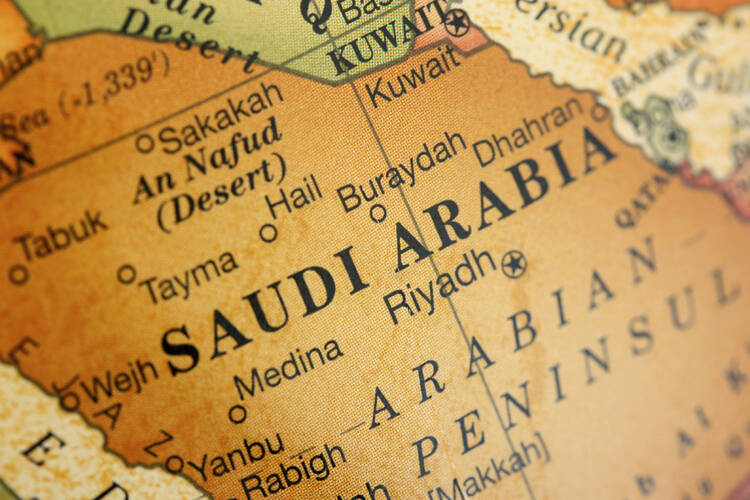On Jan. 2 the government of Saudi Arabia executed the prominent Shiite cleric Nimr al-Nimr. The cleric, along with 46 other individuals, was accused of inciting terrorism within the kingdom. Following the execution, protesters stormed the Saudi Embassy in Tehran. In the aftermath, Saudi Arabia—as well as Sudan, Bahrain and the United Arab Emirates—cut off diplomatic and commercial ties with Iran. In a statement released on Jan. 10, the Arab League also expressed support for the Saudis and condemned the Iranian government for not doing more to protect the embassy in Tehran.
The increased tension over Saudi Arabia’s reckless decision to execute Sheikh Al-Nimr has only deepened what many are calling a Middle Eastern cold war. The execution and the predictable Iranian reaction to it risked further destabilization of the region. Saudi Arabia, along with other members of the Arab League, accused Iran of fomenting sectarianism. Sheikh Abdullah bin Zayed Al Nahyan, the U.A.E. foreign minster, who chaired the league’s latest meeting, said that Iran “doesn’t hesitate to use the sectarian card as a way to dominate the region and interfere in the internal affairs of Arab countries.”
Yet this execution demonstrates that the Saudi government is also responsible for violence in the region. The execution of Sheikh Al-Nimr sends the message that the Saudis will not tolerate any kind of demand for political reform, particularly from the already marginalized Shiite population.
The U.S. response has remained muted, partly because of its close relations with the Saudi government, a stance that dates back to the founding of the kingdom in the 1930s. That is unfortunate. A stronger voice against the execution of Sheikh Al-Nimr might have prevented the crisis in the first place. But these latest events raise important questions: Is the U.S.-Saudi relationship truly viable? And should it be?
The new leadership under King Salman, particularly the actions of Deputy Crown Prince Muhammad bin Salman, has grown especially incautious in recent years. Faced with what Prince Muhammad describes as the constant threat of the resurgence of Shiite jihadists, the Saudi government says it has no choice but to adopt extreme and uncompromising measures when dealing with even alleged claims of terrorism or sedition, as the latest executions show.
The Saudis’ latest executions threaten to undermine the Syrian peace talks in Geneva. A few weeks ago, the prospect that Iran and Saudi Arabia might sit down to discuss ending the war—in which 300,000 Syrians have been killed and millions more displaced—seemed likely. Even though the Saudis are urging peace talks despite tensions with Iran, the chances that the two nations will agree to productive measures now seem quite dim.
Western countries, chiefly the United States, must encourage dialogue and peace between Iran and Saudi Arabia. But the Obama administration should not be afraid to take stronger stands in criticizing Saudi actions. For too many years U.S. dependence on foreign oil has dictated how the United States deals with the Saudis, despite accumulated evidence of tacit and practical support for terrorist groups emerging from within the kingdom. But U.S. values and comprehensive regional interests—not oil—should dictate the U.S. posture toward Saudi Arabia.
The administration should seriously consider applying what pressure it can on the Saudis toward moderating the kingdom’s treatment of dissent and its increasingly brutal role in the skies over Yemen. It should freeze any future arms deals with the kingdom. A more peaceful accommodation between Saudi Arabia and Iran will not just benefit Syrians who are being displaced by proxy wars but will also stem the growth of ISIS. Experts believe that continued tensions between Iran and Saudi Arabia will allow ISIS to increase its influence and power, particularly in Yemen.
The United States has managed to create a cautiously improved relationship with the Iranians through the recent nuclear weapons deal. Last year, Pope Francis expressed hopes that this agreement would help foster fraternity within the Arab world. That hope can be achieved only when it is accompanied by clear and credible action to reduce tensions in the region’s little cold war. In his final State of the Union address on Jan. 12, President Obama reminded Americans that “the United States of America is the most powerful nation on Earth.” The Obama administration should use some of that power to push for greater moderation from its regional partner, Saudi Arabia.








